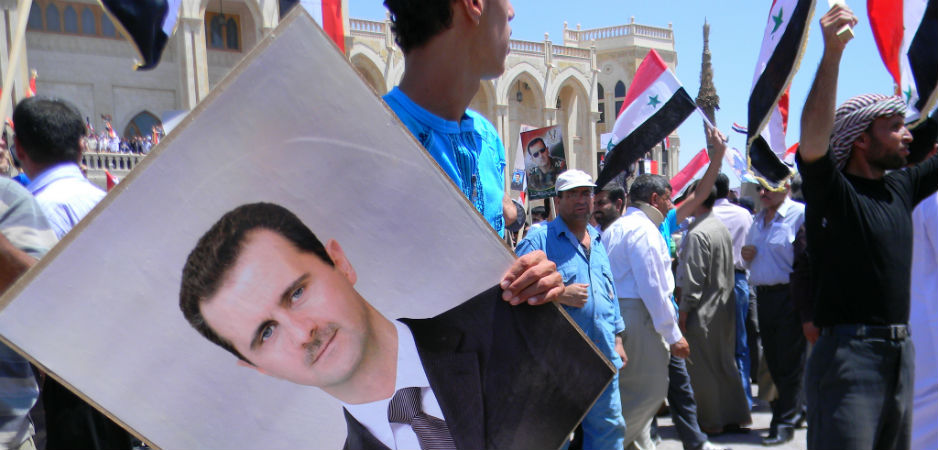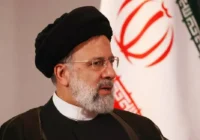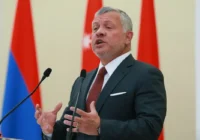Despite all the key players being at the table, including Iran for the very first time, little progress was made in the eight-hour Vienna meeting.
The meeting in Vienna that gathered the United States, Russia and Iran to discuss the fate of the brutal war in Syria has ended without any stunning landmark decisions. However, the 17 foreign ministers who attended, in addition to representatives from the United Nations (UN) and the European Union, have proposed a UN-led diplomatic process that aims to set in place a “nationwide ceasefire” in the conflict that has killed around 250,000 people since March 2011. Following the conclusion of the eight-hour meeting on October 30, the leaders have also decided to meet again in two weeks for another round of talks that aim to garner a political solution to the crisis.
Markedly missing from the talks were two major elements: any representatives from Syria, as well as any consensus on the fate of Syrian President Bashar al-Assad. The joint statement issued at the end of the meetings touted the “frank and constructive” discussions on the major issues, but admitted to still having “substantial differences” on key matters—topping the list: when and how Assad should leave power.
The US has in recent days changed its stance from the immediate resignation of Assad, to a short-term political transition through a diplomatic process. US Secretary of State John Kerry said he has “agreed to disagree” with his Iranian and Russian counterparts on the Syrian leader’s fate, reiterating Washington’s stance that Assad’s departure would help move along a peace deal to end the bloody war.
Following the meeting, French Foreign Minister Laurent Fabius reiterated his stance that Assad must go, saying, “As far as we are concerned, we think that Bashar al-Assad has no place in the future of Syria,” adding that “other people, other countries think differently, particularly Iran.”
Iran, which was invited to join the talks on Syria for the first time, signaled that it supported a six-month transition period in Syria, which would be followed by elections that would ultimately decide Assad’s fate—arguably buying the Syrian leader more time in power than the US and its allies are comfortable with. “Iran does not insist on keeping Assad in power forever,” Iranian Deputy Foreign Minister Hossein Amir-Abdollahian, a member of Tehran’s delegation at the Vienna meetings, was quoted by Iranian media as saying.
Since Iran signed the landmark nuclear deal in April 2015, it has increased its support to pro-Assad forces. In September, Iran, alongside Russia, launched a military operation that aimed to bolster Assad’s regime. So, it is with cautious optimism that the US and its allies met with Iran and Russia in Vienna to discuss the fate of Syria and its leader.
As the Vienna talks were ongoing, the US announced that it will be sending around 50 special forces onto the ground in Syria to fight against the Islamic State. The White House insisted that the move is not a dramatic change in its policy against committing ground troops to the war in Syria, but rather a “shift” in the way it is approaching the conflict.
“Our strategy in Syria has not changed,” White House Press Secretary Josh Earnest told reporters on October 30. The “mission is to build the capacity of local forces” and will not be a “large-scale” operation, he assured. The point of the mission, Earnest said, is to “train, advise and assist” the local “moderate rebel” groups in their battle against the Islamic State.
The effort, though a shift in the policy the US is applying to Syria, is symbolic that the status quo of Syria as a country embattled through years of war at the hands of a tyrannical leader, as well as a nation dealing with the terror imposed by the Islamic State, will not go unaddressed for much longer.
The views expressed in this article are the author’s own and do not necessarily reflect Fair Observer’s editorial policy.
Photo Credit: Beshr Abdulhadi
 We bring you perspectives from around the world. Help us to inform and educate. Your donation is tax-deductible. Join over 400 people to become a donor or you could choose to be a sponsor.
We bring you perspectives from around the world. Help us to inform and educate. Your donation is tax-deductible. Join over 400 people to become a donor or you could choose to be a sponsor.
Support Fair Observer
We rely on your support for our independence, diversity and quality.
For more than 10 years, Fair Observer has been free, fair and independent. No billionaire owns us, no advertisers control us. We are a reader-supported nonprofit. Unlike many other publications, we keep our content free for readers regardless of where they live or whether they can afford to pay. We have no paywalls and no ads.
In the post-truth era of fake news, echo chambers and filter bubbles, we publish a plurality of perspectives from around the world. Anyone can publish with us, but everyone goes through a rigorous editorial process. So, you get fact-checked, well-reasoned content instead of noise.
We publish 2,500+ voices from 90+ countries. We also conduct education and training programs
on subjects ranging from digital media and journalism to writing and critical thinking. This
doesn’t come cheap. Servers, editors, trainers and web developers cost
money.
Please consider supporting us on a regular basis as a recurring donor or a
sustaining member.
Will you support FO’s journalism?
We rely on your support for our independence, diversity and quality.






